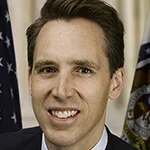|
|
Prior to entering the PR business, as print dailies began to fade, I worked as a journalist and editor at several newspapers.
As a political junkie, I spend a lot of time watching on TV what I consider the poisoning of American politics: the 24/7 cable TV political programs.
If I was still a journalist, here are a few questions I would ask of the producers, reporters and pundits on the cable shows:
If your reporters have so many “sources,” how come they rarely break any news?
Why don’t you admit mistakes like newspapers do and chyron corrections?
Why do producers still allow Kellyanne Conway to appear on programs despite her “alternative facts” answers to questions?
How can producers expect intelligent, unbiased discussions when they hire former GOP and Democratic operatives and office holders for their panels?
How often does a producer check the veracity of comments by political guests and call out the lie on the spot?
When was the last time producers checked the facts behind the opinions expressed by pundits?
When was the last time producers checked the veracity of their beat reporters’ stories, like print pubs do?
When was the last time a pundit said, “I’m not qualified to discuss that subject?”
Why do producers rely on the same pundits who said: a) Trump will never get the GOP nomination; b) Trump will never win the election and c) Clinton is a sure bet to be elected President?
Why do producers use the same pundits to discuss every political and nonpolitical happening and issues that occurs? Are they all Renaissance people?
Why do cable TV shows keep discussing Trump’s tweets despite saying how terrible they are, when major print pubs began ignoring all but the most outrageous ones many months ago?
Why do cable TV hosts keep repeating that Trump’s tweets “change the subject” and determine what will be covered that day. (Funny, how the tweets don’t determine what the print pubs will cover.)
One aspect of cable TV entertainer punditry that truly was astonishing was their fast opines when President Trump nominated Judge Gorsuch for the Supreme Court. Faster than a speeding bullet, the collected wisdom of the pundits was that Gorsuch was the best the Democrats could hope for. It surprised me that so many who have been wrong so many times are also Constitutional experts. Who knew? Maybe I underrated them.
Political junkies probably know that The Literary Digest, a respected publication, ceased publishing after it predicted that GOP Presidential candidate Alfred Landon would trounce Democratic President Franklin Delano Roosevelt in the 1936 election. When the votes were counted Landon won only Vermont and Maine. A rival poll by George Gallup, predicted an easy FDR victory, which is what occurred, and the Digest ceased publishing the next year. Over the years, it has been said the loss of the publication’s creditability helped cause its demise.
The cable TV political pundits have been wrong about their analysis more times than was the Literary Digest, which in 1916, 1920, 1924, 1928 and 1932 correctly predicted the Presidential Election outcome. Yet cable pundits’ flawed analysis continues (and is made worse with the addition of former GOP and Democratic strategists).
But it’s more than the ubiquitous punditry that bothers me about cable TV. On September 29, MSNBC’s Hallie Jackson reported that President Trump would visit Southeast Asia allies on an extended trip. Ms. Jackson then added, “We’ll be very busy.” Her comment crystallizes my main complaint about cable TV. Unlike TV news talent of the past, most of the cable people act as if news is a show biz production and they are the stars. The same is true for network newscasts, which send their anchors to trouble spots so they can share the spotlight with the happenings.
In other businesses, employees would be terminated for making so many mistakes, so often. And while I don’t like to see anyone lose their job, some culling of pundits is justified after the more than a year-long prediction of a Hillary victory, which might have caused some voters to stay home and provide Trump with the slight margins he needed in Pennsylvania, Michigan and Wisconsin.
However, there’s one aspect of coverage at which political cable entertainers excel. It’s their split-second change from calm questioning and reporting to a shouting and exasperated individual, according to the topic being reported. (As a person who worked with some of the greatest show biz actors at a theatrical PR firm for 10 years before joining the corporate world, I can say some of the performances on political cable TV are worthy of a Tony, and their scripts are rewrites of reporting from the morning print pubs.)
So, I tell friends to keep an open mind, and don’t depend on TV (or radio and print pundits) for your political decisions. Be cynical when these all-knowing pundits speak out. Remember, at one time your mother thought you knew it all … and then you brought home a report card.
***
Arthur Solomon was a senior VP at Burson-Marsteller. He now is a contributor to public relations and sports business publications, consults on PR projects and was on the Seoul Peace Prize nominating committee. He can be reached at [email protected].

 Arthur Solomon
Arthur Solomon
 Democrats play their favorite game, which is bashing Big Oil for its effort to cast doubt on global warming... Wingnut Marjorie Taylor Greene justified her vote against the Antisemitism Awareness Act by sputtering antisemitic nonsense... The deeply politically polarized USA stands united in worries about 2024 election coverage.
Democrats play their favorite game, which is bashing Big Oil for its effort to cast doubt on global warming... Wingnut Marjorie Taylor Greene justified her vote against the Antisemitism Awareness Act by sputtering antisemitic nonsense... The deeply politically polarized USA stands united in worries about 2024 election coverage. What would you do if you have received a call from one of Musk’s few remaining top lieutenants to see if you would be interested in advising him on PR matters?
What would you do if you have received a call from one of Musk’s few remaining top lieutenants to see if you would be interested in advising him on PR matters?  Nike finally throws in the towel and admits that its new MLB uniforms are a flop... A good chunk (34 percent) of TikTokers support a ban on the Chinese app.... "Lede of the Week Award" goes to Wall Street Journal reporter Angus Berwick for story abourt John Jacob Astor IV's gold pocket watch.
Nike finally throws in the towel and admits that its new MLB uniforms are a flop... A good chunk (34 percent) of TikTokers support a ban on the Chinese app.... "Lede of the Week Award" goes to Wall Street Journal reporter Angus Berwick for story abourt John Jacob Astor IV's gold pocket watch. Republican tough guys Josh Hawley and Tom Cotton want Biden to send the National Guard to Columbia University to put an end to student protests... Bernie blasts Bibi for insulting America's intelligence by equating criticism of Israel's government with antisemitism... German court convicts former financial PR exec who claims he wasn't aware that trading on tips is illegal.
Republican tough guys Josh Hawley and Tom Cotton want Biden to send the National Guard to Columbia University to put an end to student protests... Bernie blasts Bibi for insulting America's intelligence by equating criticism of Israel's government with antisemitism... German court convicts former financial PR exec who claims he wasn't aware that trading on tips is illegal.  Southern governors claim they know what's best for their working class, and it's not pay raises... A Ukrainian human rights group played a key role in convincing House Speaker Mike Johnson to hold a vote to send arms to Ukraine, Israel and Taiwan... Trump Media & Technology Group blames short-selling and not lousy outlook for its stock slump.
Southern governors claim they know what's best for their working class, and it's not pay raises... A Ukrainian human rights group played a key role in convincing House Speaker Mike Johnson to hold a vote to send arms to Ukraine, Israel and Taiwan... Trump Media & Technology Group blames short-selling and not lousy outlook for its stock slump.


 Have a comment? Send it to
Have a comment? Send it to 
No comments have been submitted for this story yet.